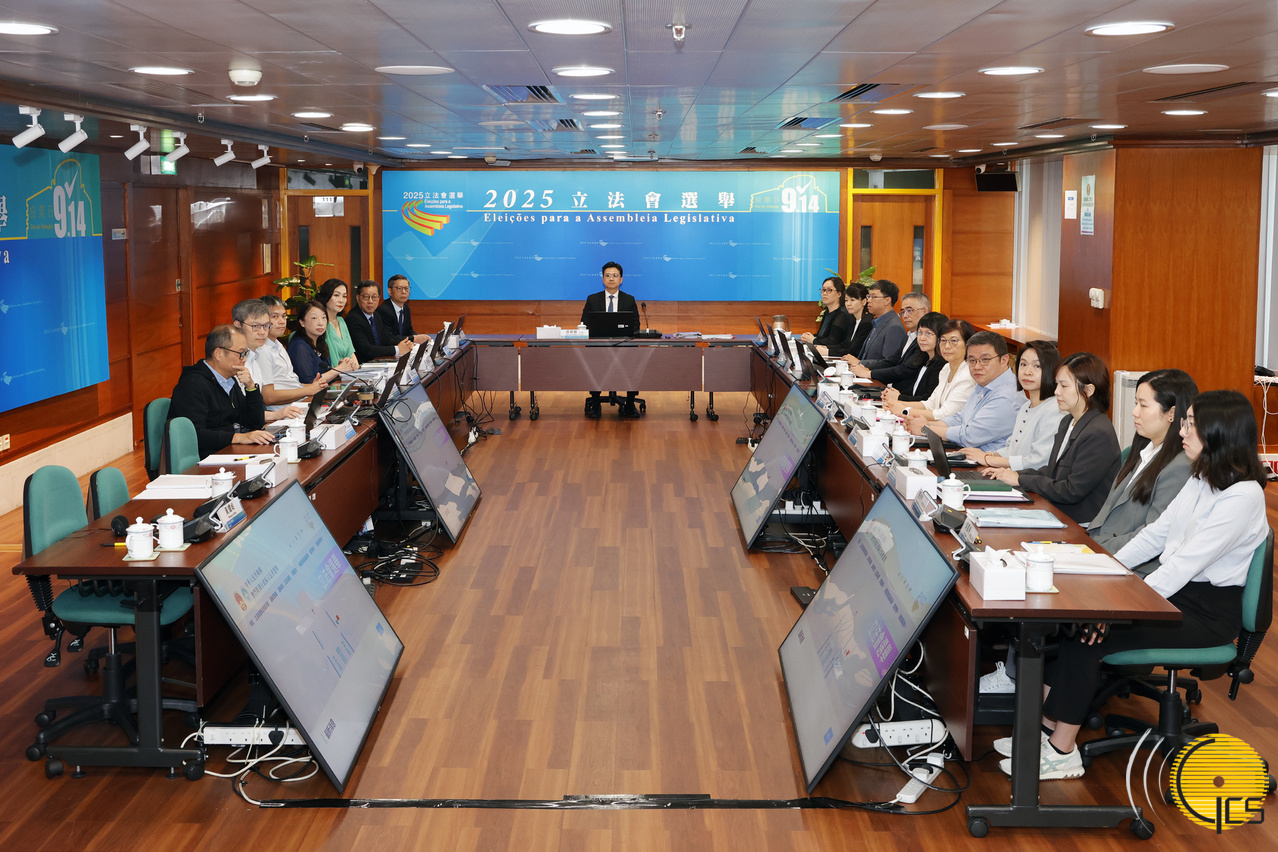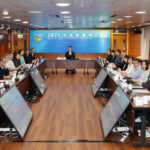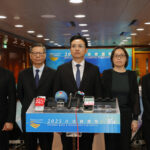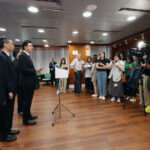 The Electoral Affairs Commission for the Legislative Assembly Election holds a work meeting.
The Electoral Affairs Commission for the Legislative Assembly Election holds a work meeting.
The Electoral Affairs Commission for the Legislative Assembly Election today reminded members of the public that the non-campaigning period for the upcoming election will run from 27 June to 29 August, during which no individual or entity may conduct any form of electoral promotion.
The Chairman of the Electoral Affairs Commission, Mr Seng Ioi Man, issued the reminder today in comments to reporters following a commission meeting.
He also observed that the deadline for nomination committees to submit their respective lists of candidates and political platforms for the Legislative Assembly Election is 26 June.
As of noon today, the Electoral Affairs Commission had received a total of six candidate lists for the direct election, as well as six candidate lists for the indirect elections.
As nomination committees submit their materials to the Electoral Affairs Commission, each proposed candidate must sign a declaration upholding the Basic Law of the Macao Special Administrative Region (MSAR), and pledging allegiance to the MSAR of the People’s Republic of China. A deposit of 25,000 patacas (payable via bank transfer, cashier’s cheque, or certified cheque) is also required.
The full set of candidate lists will be publicly displayed on 28 June on the ground floor of the Public Administration Building.
According to the schedule for the electoral procedures, the Electoral Affairs Commission will announce the set of validated candidate lists by 15 July, with the final set to be published between 18 July and 31 July, should there be appeals. The validated lists will contest the direct and indirect election seats in the Legislative Assembly Election scheduled for 14 September.
Under the revised Legislative Assembly Election Law, the non-campaigning period begins the day after the candidate list submission deadline, i.e., 27 June, and runs until 29 August, when the official campaigning period begins.
Those involved in any act deemed to constitute campaigning during the non-campaigning period may incur a fine of between 2,000 patacas and 10,000 patacas.
In his comments to reporters, Mr Seng called on trustees of candidate lists, candidates, campaign teams, and the general public to strictly adhere to electoral regulations, refraining from any unlawful campaigning activities in order to jointly uphold electoral order and ensure the Legislative Assembly Election proceeds smoothly under a lawful, fair, just, and clean environment.
To enhance public understanding of rules related to the non-campaigning period, the Electoral Affairs Commission has compiled a Q&A document and uploaded it to the official election website (www.eal.gov.mo) for reference.
Mr Seng outlined key points requiring special attention. Under the Legislative Assembly Election Law, “campaigning” refers to any act intended to draw public attention to specific candidates, whether explicitly or implicitly, in order to encourage voters to support or reject them.
During the non-campaigning period, no individual or entity may use text messages, phone calls, emails, smartphone apps, postal mail, or other means to solicit public support for specific candidates.
Prior to the non-campaigning period, the mere sharing of election-related news – such as updates on the formation of nomination committees or the submission of candidate lists – does not constitute campaigning. Existing posts on public online platforms need not be removed before the non-campaigning period begins. However, once the non-campaigning period starts, reposting or pinning such content will be deemed a campaign violation.
Candidates who are incumbent members of the Legislative Assembly must cover or remove campaign materials (e.g., posters, videos) displayed in public areas of their offices. They may continue their legislative duties, attend public events, and engage with media to discuss current affairs or review past work – provided such activities avoid campaign-related content, particularly references to electoral platforms or polling prospects.
In addition, Mr Seng said the Electoral Affairs Commission was finalising the preparation of reporting forms for trustees to declare details of campaign materials intended for distribution during the official campaigning period. This would allow the Electoral Affairs Commission and the Commission Against Corruption to jointly monitor compliance, provide guidance, and assess adherence to campaign spending limits.
The Electoral Affairs Commission reminded trustees that materials distributed to the public during the official campaigning period must not include welfare incentives, as these may constitute a form of electoral bribery.
Since its establishment, the Electoral Affairs Commission has launched extensive outreach activities to deepen public understanding of the revised Legislative Assembly Election Law and promote the principles of lawful, fair, and clean elections.
As election day approaches, further promotional efforts will be made to intensify such work through banners, posters, and videos to be displayed across the city, said Mr Seng. He stressed that the Legislative Assembly Election is a major political event held every four years, requiring active voter participation. He urged all eligible voters to cast their ballots on 14 September, in order to have a say in the formation of the new-term Legislative Assembly.




